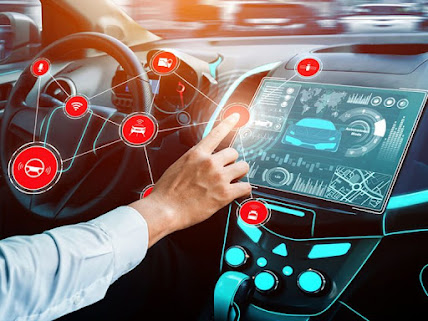The Next Big Thing in Fleet Management System
Fleet management systems have brought a revolution in the logistics and transportation industry around the globe. They have changed the operational techniques offering better productivity for the businesses. The growing demand for management solutions has resulted in a wide variety of its service providers. Due to this reason, a business of any scale and scope can choose the appropriate monitoring software for it.
Modern technological innovations have improved the efficiency of monitoring solutions. From their user-friendliness to the ROI, everything has increased gradually. With time, more and more improvements are taking place to enhance the working of the tracking software. Let us look at the different innovations that will be incorporated widely in management solutions in the future.
5G Technology:
Although talks about 5G have been around for quite some time now, it is still fairly new technology. It contains the immense potential to boost the scope of various businesses due to its remarkable speeds. According to estimates, 5G may have 20 times faster speed than 4G technology. Like many other businesses, it can also impact the working of vehicle tracking software positively.
The GPS tracking software relies on data transmission in its processing. With the extraordinary speed, the 5G technology can speed up the processing to a great extent. It will enable quicker transmission of data enabling faster communication between individuals. Thus productivity increases during daily tasks resulting in better outcomes for a business.
Autonomous Vehicles:
Drivers are usually the main point of concern for fleet managers. At times they do not complete their work shifts properly, whereas sometimes, they waste fuel due to idling. What if there are no drivers? It may seem to be a far-fetched idea, but it is already happening in various parts of the world. Various companies are testing autonomous vehicles to enable hassle-free operations. Currently, their feasibility studies are going on to launch them globally.
If autonomous vehicles are introduced in the fleet industry, they can bring a huge impact. Everything will be possible, from getting rid of the driver management to excellent fuel efficiency and longer work shifts. It will also ease the managers' job as they will have lesser things to worry about and can focus better on the core issues. Moreover, fleet safety will improve as no personal errors will be involved during the daily operations.
Remote Monitoring:
Regardless of its features, a static monitoring system is not the desired choice for businesses. In this day and age where everything is happening so fast, fleet managers need to keep up with the ever-changing activities. They cannot just sit in one place to monitor operations. With the concept of remote monitoring getting popular, managers now have the freedom to get real-time updates on their mobile devices.
With the development of cross-platform mobile monitoring apps, it is possible to stay informed about the latest information all the time. A modern fleet tracking software also comes with a state-of-the-art communication mechanism offering managers complete control over operations. In the near future, every vehicle tracking software will offer remote monitoring in its basic suite of features.
Evolution of Telematics:
The fleet management systems are based on telematics technology. Their different features like driving and fuel monitoring work on the principles of telematics. However, the scope of telematics technology is expanding every day, and it will make monitoring software even more beneficial. Many innovations like AI and AR will enhance the functionality of GPS tracking systems immensely.
The introduction of modern inventions in telematics will take automation in fleet operations to the next level. Managers will be able to monitor every single move of the drivers through the monitoring app. As the device sensors become more efficient with an increase in transmission speeds, the managers can witness the real-time scenario from their workplace. It will help in better decision making resulting in better output.
Electric Vehicles:
Fuel management is one of the biggest headaches for a manager during daily operations. The reason behind it is that fuel costs make up most of the overall expenses. What if there is a solution to this problem? Electric vehicles are the answer to all these worries. They do not need fuel to travel and are capable of running solely on electricity.
Electric vehicles not only save expenses but also provide an environment-friendly alternative for fuel-powered vehicles. They are much safer as compared to conventional vehicles as there are no fuel leakages. With the growing popularity of electric vehicles, more and more companies are turning to them.
Enhanced Data Visibility:
Data is at the core of modern tracking solutions. Every function of tracking software is based on data transmission. Managers take different decisions on the basis of it and this reliance is bound to increase in the future. The modern GPS tracking software is becoming more data-centric with time.
With the introduction of more sensors, the data transmission on vehicle tracking systems will increase. Every discreet detail will be available in the form of data that will help managers strategize and make decisions. The data-driven decisions will prevent the probability of human errors and enhance the efficiency of fleet operations.
Increased Connectivity:
There are many areas of a fleet business ranging from drivers and managers to the HR and financial department. If all of them are fully connected, it can result in better automation and productivity. Modern fleet monitoring software is offering seamless integration between all the departments. The API integration offers a centralized platform for everyone where they can view all the required information.
The modern innovations in tracking software are allowing the accessibility of driving videos to the managers. They will be able to view the drivers’ activity during the trips giving them better control of the daily operations.
Fleet Management system has become indispensable for the transport and logistics businesses. With the introduction of many innovative features, they are more efficient than ever. Further technological advancements will compel more companies to use it to increase their productivity and return on investment (ROI).



Comments